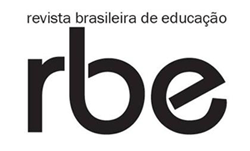The article intends to contribute for the rescue of one of the silent presences in the country history - the child. It's not about any child, it's about the poor child, exposed to the brutality, to the violence of the social relationships due to the form assumed by the capitalist expansion. The last decades of XIX th century and the first of the XX th century are characterized by the development of the brazilian economy and the urban-industrial expansion, the changes in the work relationships (the manpower free market constitution) and in the government form (from the Imperial regime for the Republican regime). The basic redefinition in the social relationships are accompanied of attemps accomplished by the São Paulo's dominant fraccions in the sense of reaching larger control of the social through the amplification of the agencies of the state. In the institution and knowledge web complex, seeking the works'moralization and adjustment, besides the schools, the asylums and reformatories destined to poor, abandoned and transgressor children, constitute an important pedagogic resource. The text is about São Paulo's oficial iniciatives promoted by the Empire government and by the first republican administrations: the Artificers Scholar Institute, the Discipline Institute, for boys, and the Glory Seminar, for girls.
